Is anyone out there happy with their tankless water heater?
I've just spent the past 2 hours reading posts about tankless water heaters here on GW. We WERE all set to have a Bosch system installed next week. But after reading all of these reviews, I'm going to tell the plumber to hold off.
The preponderance of comments have been negative about tankless units. Is anyone happy with theirs? And I haven't read a single good comment about the Bosch....something about a bad design and water flow.
Our plumber has done a great job so far on a complete house renovation. He says he has installed tankless heaters before, and he initially recommended Rheme. Then our plumber supply rep who is supplying all of our plumbing needs for the house recommended Bosch. When we asked the plumber about Bosch, he said that would be good too. So go figure......does anyone really know???!!!
I might add that we are down-sizing from a 3600 to 1800 square ft. house (including basement). We decided to go tankless because of space constraints and the fact that we'll be traveling half of the year.
All of our runs are short. In fact, the water tank will be close to both bathrooms and right under the kitchen sink.
Please help, and let me know if you think we're making a mistake by installing a tankless.
Comments (97)
camp9
9 years agolast modified: 9 years agoThe delay to hot water with a tankless is also affected by the incoming water temperature. That directly affects user experience. With a tank, the user does not typically realize how long it took the water in the tank to get hot.
I had a Rennai tankless installed several years ago. Great unit, no complaints, but it is tankless - and the longer delays to hot water on the coldest winter days can be a bit annoying.
EdDunn
9 years agolast modified: 9 years agoPlease be aware that only folks that have problems post about products on the internet. I have had a Bosch Aquastar 125b for almost 10 years. Very happy with it. Have saved 20% on my gas bill all that time, so that would be about $30 to $40 each year. For me, it is more about my carbon footprint, but having installed it myself, changing out a tanked WH, It has near paid for unit, which cost almost $500. I don't have hard water problems, so I have only flushed it once, about 4 years ago. Nowdays there are a lot more choices. I am considering my next one to be an electric, powered by photo voltaics, in essence, a solar water heater with less maintenance, and space requirements.
Related Professionals
Franklin Plumbers · Fairfax Handyman · Apex Kitchen & Bathroom Remodelers · Auburn Kitchen & Bathroom Remodelers · Calverton Kitchen & Bathroom Remodelers · Ewa Beach Kitchen & Bathroom Remodelers · Kendale Lakes Kitchen & Bathroom Remodelers · Mesquite Kitchen & Bathroom Remodelers · Mooresville Kitchen & Bathroom Remodelers · Pico Rivera Kitchen & Bathroom Remodelers · Portage Kitchen & Bathroom Remodelers · South Barrington Kitchen & Bathroom Remodelers · Wilmington Kitchen & Bathroom Remodelers · Mountain Top Kitchen & Bathroom Remodelers · Tanque Verde Kitchen & Bath Fixturesjakethewonderdog
9 years agolast modified: 9 years agocamp9: I'm sorry, but I don't believe that's correct unless your tankless was seriously undersized.
Virtually every tankless heater I've seen has a variable BTU input. When the water inlet temps are lower, the heater increases the amount of fuel to compensate all the way up to its maximum BTU input.
Once a heater reaches its maximum BTU input, it will throttle water output if need be to maintain a constant temperature output.
If your heater was significantly undersized, it would have been restricting the GPM output on the coldest days enough to increase wait times. That's a design issue, not a water heater issue.
A properly designed system should only introduce 2-3 seconds of additional wait time for hot water unless a circulating system or small storage tank is used in order to reduce wait times more.
Insulated water lines will reduce the wait times between uses by not allowing the pipes to cool.
zl700
9 years agolast modified: 9 years agoBesides ignition you can add the additional pressure drop a tankless has over the tank. This reduces the flow rate to a wide open fixture, thus adding to the wait time.
live_wire_oak
9 years agolast modified: 9 years agoMy tankless installation is now going on 18 years. With no problems. I have none of the "extra" waiting time that myth would have exist. No pressure drop either.
How long you wait for hot water to reach a fixture is an element of the overall design of the plumbing runs, and how much cold has to be purged from those runs. It's not a result of the production method of that hot water. If the heaters are in the identical locations, then the identical amount of cold water has to be purged from the lines before hot water reaches a fixture.
jakethewonderdog
9 years agolast modified: 9 years agozl700, that's really grasping...
Virtually all faucets are limited in their flow rates. The pressure drop introduced by a tankless would not be a factor.
As I mentioned a tank heater will keep hot water in the first 6 feet or so of pipe. So that, in addition to the time it takes a tankless to fire, adds 2-3 seconds to a wait over a tank heater.
That's only if the pipes have cooled. My hot water lines are insulated, so I don't have that wait every use - just when there's been an amount of time between uses.
pprioroh
9 years agolast modified: 9 years agoDavidrt28. My aren't you quite the smart ass... I am not lacking in common sense, I spent several thousand dollars installing a tankless unit, was very excited to get it and in fact replaced a perfectly functional unit to get it.
The simple FACT is that our times to get hot water are very noticeably longer Han with our prior tanked unit. Especially noticeable in the kitchen were it takes probably at least a minute of full open tap. You can post what you want in whatever rude way you wish but I built this house, I've lived in it for over 10 years now about 3-4 with the tankless unit.
Others have suggested that our home was not set up correctly (we do have a large 3 story home about 5500 sq ft) and my personal belief is that due to the pipe insulation we installed we had enough convection in the system with the tanked unit that was kept warm that the hot pipes always had some warm water present. Of course that wasted energy.
I never said that water leaving the unit took longer but there is NO DOUBT it takes longer to the tap. I'm not bashing tankless units but potential users need to be aware of the real world use. My plumber said most people who installed them ended up going back to tanked units. I thought he was just behind the times but now after living with one for 4 years and getting ready to build another new home we will be going back to a (super insulated) gas tanked unit.
jakethewonderdog
9 years agolast modified: 9 years agopprioroh:
We tend to have large, spread out homes and it's not uncommon design for the water heater to be placed at one end of the house and the master bath, for example, at the other.
None of that is particularly good design, but I get it that in a retrofit situation you can't change some of that.
Often times with tankless it's possible to move the heater closer to the point of use - this is especially true with a condensing unit where the vent is cheap PVC.
Despite the marketing to the contrary, the efficiency of tankless doesn't come from the fact that there isn't hot water cooling in the tank, it comes from the dramatically lowered flue temps. A standard gas tank water heater with an atmospheric vent - no matter how well insulated -- can't come close.
There are tankless / tank water heaters out there that combine a tank with a tankless heater. This gives you most of the operating efficiency, less delay, no cold water sandwich, ultra fast recovery (almost continuous), and a smaller BTU/h input so it can be done without as many concerns about gas supply.
The link below is an example: I have no experience with this unit, just using it as an example. It's 100k BTU/h input at 96% efficiency. A standard tank is ~40k BTU/h at 62%
A tankless heater is ~200k BTU/h (which is why there can be concerns about gas supply).Take a look at these types of heaters for your next house.
Here is a link that might be useful: Hybrid gas water heater
pprioroh
9 years agolast modified: 9 years agoJake- that looks like a great product! Will definitely consider. We also will likely be PEX in next house with home runs vs. larger trunk lines of copper which will likely help with distribution times. thanks again, those are the kind of comments that are actually helpful on this site!
bryan_b
9 years agolast modified: 9 years agoHere’s a report that may interest a few of you. Among other things, it answers the much debated question in this thread about time required to get hot water from conventional and tankless water heaters (see pg. 69). In case you don’t want to read the whole thing, the abbreviations used are CTWH = Condensing Tankless Water Heater, NTWH = Non-Condensing Tankless Water Heater, and StWH = (conventional) Storage Water Heater.
Happy reading!Here is a link that might be useful: MNCEE Report
pprioroh
9 years agolast modified: 9 years agoInteresting article. relating to my comment above, in that study 67% rated tankless unit unfavorable for delayed time for hot water. This is consistent with my experience, desipte what David above so smugly implies....
pprioroh
9 years agolast modified: 9 years agoOOps, sorry it's -72%- that rated tankless unfavorable due to delay in hot water, not 67%
kudzu9
9 years agolast modified: 9 years agoOn the other hand, tankless water heaters can often be located in different parts of the house. For example, I installed an electric tankless water heater near a new bathroom and the wait for hot water is seconds in that location, compared to more than a minute in the winter if I wanted to take a shower supplied by my more distantly located conventional gas water heater.
tedred
9 years agolast modified: 9 years agoIt is a fact that tankless water heaters take a little more time to get hot water to the tap. That's because they wait for a few seconds to make sure water is flowing through for safety. A tank water heater on the other hand starts sending hot water right away. But I am not sure if the differences in delay should not be as sharp as in the article. I am a tenant and I've got quite an old tankless in the kitchen without even a readable brand name. I just checked it and it fires in three seconds once I open the kitchen faucet.
And as kudzu9 pointed out, you can locate them close to your taps.genevieve24
8 years agoIn my home I installed a Bosch tankless in 2006, never a problem. Just found out last year I had to descale it, did so but never had any problems prior to. In a rental, I replaced three tank water heaters with tank water heaters in the past two years. Each time the bladder split after about 10 months. I learned the bladders were imported from another country. I purchased the new tank water heater from another store. At this time my son is researching tankless water heaters for his home. Question? Which has a 5 star rating?
davidrt28 (zone 7)
8 years agolast modified: 8 years agoActually if a tankless is *truly* installed correctly, it's usually 35-100 ft. closer to the point of use, so, yes, in fact, it delivers hot water faster than a tank! Unless you have a wasteful recirculating system.
If 72% of Americans are unhappy that it is taking longer, that's merely because most American plumbers are lazy and/or greedy and/or idiots and didn't want to install them correctly. Or homeowners are idiots are don't insist on them being placed in the right spot. When I lived in the UK in the 1990s I saw, duh, there was a tankless in our residence in the kitchen for hot water there, and in the bathroom for hot water there! So when I had mine installed, I put it between the two bathrooms on the same floor. I have lowish water pressure...my wait for HW went from a good 30 or more seconds, to about 10.
trudytrem1001
8 years agoWe installed an Aquastar 125B when we built our house 14 years ago. We have had problems with the hot water cutting out when we're in the shower. We just get it to the temp we like, and it turns ice cold. Interestingly, if we open another faucet in the bathroom, that seems to take care of it. Plenty of hot water! We had a new faucet installed in the kitchen this spring, and I have trouble getting hot water there. Again, if I open a faucet in the downstairs bath, the water is hot hot! (We haven't descaled it; our water is very soft.)
I was thinking that there is a problem with the unit, and am considering replacing it, but am not excited about spending $1300 and not solving the problem. Thoughts?
Another comment: In 2010 the thread had dozens of posts, all polite, respectful and helpful. Now in 2014-15 things get a little snarky. It doesn't have to be this way.
dadoes
8 years agoAs discussed above, this situation can be caused by the tankless setpoint being too hot, leading the showerer to cut way back on the hot flow rate, tempering it with more cold flow. The tankless unit will shut off if the flow rate is too low. Your workaround of turning on a nearby faucet (which increases the flow rate through the tankless) seems to support this as being the cause. Assuming there's nothing wrong with the unit, a better fix may be to reduce the tankless setpoint so you can run more hot flow in the shower to keep the unit from shutting off.
trudytrem1001
8 years agoThanks. I found a FAQ re: Jacazzis that said the same thing, and have set it back. Hope this works.
User
8 years agoTrudy, I'll bet your bosch just needs a higher flow rate/ demand to keep the burner running, and your single fixture just isn't asking for it.
Same problem bosch units had before. Dodoes solution might just work though doing that drives up the volume your fixture asks for.
which is fine for a solution, but bosch buyers should still beware.
trudytrem1001
8 years agoThat could be the problem in the kitchen. The flow rate has seemed pretty anemic since we got it.
Since I set the temp back, the showers have behaved much better.
User
8 years agolast modified: 8 years agoSome of the new faucets have just over 1 gpm flow rates - which would make the hot demand anemic.
Which would explain Trudy's heater's behavior.
Trudy - might check to see if your faucet has a temp limiter on it and raise it to max. Might solve the prob. there.
A J
8 years agoAfter a lot of reading and research, here and elsewhere, I replaced my 75gal tank(which failed) with a 9.5GPM Rheem from Home Depot. Despite some reservations based on reliability, I went with the Home Depot one because I could get it immediately, which is relevant when you're taking cold showers!
Anyway, first unit had an internal leak, so returned it and got another one which works fine. So, Rheem quality didn't impress, but again, I really didn't have much of a choice.
It's been a couple of weeks, and I love it - I've run three faucets simultaneously and had no problems. It fires up very quickly, nearly immediately, and stays on with pretty low flow as well.
Installation isn't difficult, I had help from a pretty handy friend though. The gas service to my house was already more than adequate to add a 200kbtu unit, we had to replace the 1/2" gas line to the old heater with 3/4", and changes some 1/2" water lines to 3/4" as well. All in, it was a couple hundred in materials, and maybe 8 hrs labor for each of us.
So far, extremely pleased with the result, too early to gauge how much my bills will be reduced by. For installation - it seems plumbers are really gouging people on this stuff - if you can find someone to give you an hourly rate, plus materials, that'd be the way to go. The cheapest quote I got(using Home Depot affiliated installers) was "starting from $2500", which made it sound like there was no way it'd be only $2500. Thus, the self-install.
kudzu9
8 years agoAJ-
Thanks...useful info. Regarding the internal leak, did you just notice a drip coming out of the housing, or how did you discover it? Also, which water lines did you have to change from 1/2" to 3/4"?
A J
8 years agoSo calling it a leak is an understatement - you could hear it bursting out, and when we opened the cover, it was a little fountain! There was an elbow joint inside that wasn't sealed, or it was cracked, not sure, but water was gushing out. So a clear quality control issue. I suspect the unit had been previously returned, as it was a little scuffed. When I returned it, I was clear that it was defective and unusable, hopefully they don't seal it up and sell it again...
On the water - I'm not sure it matters at all, but there was a small inlet line that was replaced since we had to re-route some plumbing anyway. Also the hot water to it's first "T", which was also only a few feet away. I'm pretty sure the flow rate on 1/2" copper pipe is way higher than what any tankless system can supply anyway.
kudzu9
8 years agoThanks...again, useful info. I'm planning on doing the same when my current water heater dies.
jackfre
8 years agokudzu, Why wait? My experience with water heaters is that once you have water on the floor, everyone freaks and has to have hot water by noon and can't wait. Therefore, a new tank goes in. Tankless are "planned" replacements and you need to look ahead. Your old water heater is just...old. Do your research and do the tankless sooner rather than later!
qbryant
8 years agoAre there less chances for leaks?
are tank has to be inside because of detached garage.
User
8 years agoThere is no tank to rust out and the heater matrix is copper or stainless so those won't rust either. They do need to be descaled periodically depending on your water quality.
Around my patch , everyone's water heaters are inside. Garage , no garage, tank or tankless, gas or electric - makes no difference.
hattysue
8 years agoChiming in belatedly with an answer to the 2010 OP, as well as a question about remedies for buildup.
For a small apartment built into what had been two bays of a three-bay garage, I put in one pou electric tankless for the kitchen and a slightly larger one to service the bathroom and clothes washer. The first pair, which I bought online as Bosch, were not Bosch-like in their reliability and caused my tenant a faux nervous breakdown. Since I replaced both units with Eco-Smart, however, it's O Brave New World. Both units have worked flawlessly and, my current tenant is happy with his electric bill.
The one problem we have run into is the buildup of mineral residue in the system. I was able to remedy that with an aftermarket Aquapure filter system installed at the intake of the water heater.. It seems to need replacing every six months or so, which is not onerous.
For the future -- I am planning tankless heaters for both my house and its English basement apartment -- I wonder if anyone knows of other means to deal with the buildup of scale? I have read about yearly flushing by a plumber and/or installing a whole house water softener. both of which sound disproportional to the problem
Cheers and thanks.
A J
8 years agoWhile I'm a year away from having to flush/clean my tankless heater, it looks pretty easy - there's instructions from manufacturer's websites, and how-to videos on youtube. You need vinegar, a bucket, and a small pump and it's very much a DIY thing. You won't need a plumber.
AvatarWalt
8 years agoHattysue, your setup with a pou for the kitchen and another for the bath and washer sounds like what I've been pondering. Did you just run a cold water line to the kitchen? I tried to ask this very question in another thread, which wasn't especially well-received.
User
8 years agoAJ - You may want to rethink that. If you ever have a problem with the heat exchanger, you will have to PROVE that it was flushed annually by a certified plumber or you won't get warranty coverage.
User
8 years agoTisk, tisk Alice. If you actually flush it when required there won't be a need for a warranty on the heat exchanger.
The engineers that look at these things can easily tell why something failed and the warranty is for something unforeseen in manuf. process like a bad batch of copper, or crappy castings - it's not to replace your heater because YOU failed to maintain it either by doing it yourself or by hiring it out.
If your exchanger has lime scale in it , then you didn't flush it enough for your water quality. It's pretty cut an dried. The resulting failure is not a manufacturing defect.
hattysue
8 years agoAJ, thanks for the heads-up on cost-effective maintenance of tankless heaters. I am a big believer in the efficacy of vinegar for most things in the real world.
Avatarwalt, I have posed your question to the person who installed our POU systems in the studio apartment. Here is the reply: "you need two cold water lines, one to supply cold water and the other to supply the tankless." Read below, however, to discover other caveats.
So now, the sad news and proof of my cluelessness. I have been planning tankless heaters for my house based on a profoundly flawed understanding of what is involved in providing power for electrical tankless water heating. I should have remembered this from having to upgrade the electrical bits as we were putting in the studio apartment (elsewhere in the city) six years ago, but I did not.
I am hopeless about electricity, but checking youtube for Ecosmart 27 and Ecosmart 11 pulls up videos by homeowners who are not. The enhanced-for-tankless-waterheater electrical stuff in both cases is glanced over, because the water heater is installed in the same space as the breaker box and the additional wiring is just there, exposed, rather than having to be run 40 or 60 feet through the ceilings of finished space.
My house is a 114-year-old brick row house renovated on spec -- i.e., not with an eye to life-cycle costs -- in the mid-1970s. For both the upstairs and the basement apartment, the breaker box is at the very front and the current water heater is in the very back. Indeed, the conventional water heaters for both living spaces are squat little numbers installed in an unheated crawl space that is behind the apartment and below my kitchen. Hence my enthusiasm for tankless water heating indoors.
Because the electrical work for a tankless water heater for the basement (which is all electric, with its own meter) would be preclusively destructive and expensive, I will replace the current water heater with a better-insulated in squat tank in the same position.
Because I have gas going to my kitchen stove, I hope to replace the water heater for the house with a tankless gas water heater.
When I lived in Japan as a kid, our gas water heater hung high on the kitchen wall. When someone turned on the shower, all the jets would fire up beautifully and you could see why the hot water really was virtually instant. That is what I am hoping for when I renovate my kitchen this winter.
I am really going to work on my decision-making skills in the interim.
Whew, let this be a lesson to you, and cheers.
AvatarWalt
8 years agoThanks so much for the inquiry and detailed reply hattysue! Having gotten some quasi-nasty replies in another thread, it's nice to find someone who doesn't think it's a ridiculous idea.
And I had to laugh at your self-professed cluelessness, as one of my go-to questions is "what am I overlooking?" as most of my great ideas turn out to have a fatal flaw--or several. We lived in Thailand when I was a kid and, like you, I remember the tankless heaters in the bathroom and kitchen, and I'd love to replicate the instant hot at the kitchen sink to make it quick and easy to wash hands, rinse things, etc. without wasting water or running it into a watering can while it warms up. People have recommended recirculating on a timer, but since kitchen use is so random that's not much help. We're doing a larger-scale remodel, so running wiring to the kitchen and putting in needed stuff in the electrical box should only be a matter of $, not of destruction.
User
8 years agoxedos,
If you have a tank failure, no company engineer is going to actually look at your heat exchanger as a matter of course. The company is going to ask for proof of flushing/cleaning according to their specifications. No proof = no warranty coverage. Unless you file suit to push the issue, it won't matter whether your heat exchanger failed due a manufacturing problem or not - there will be no actual diagnosis. Performing the required cleaning is easy to DIY - paying a plumber approved by the water heater manufacturer is the insurance you'll need to get warranty coverage should you ever need it. It's in the fine print.
User
8 years agoAlice, you re simply being daft now.
The heater company cannot require that you use a plumber named by them, nor do they certify any for flushing to my knowledge. This is akin to a car maker requiring you use the dealer for oil changes in order to have a warranty. You're welcome to have a third party or even DIY the service and a receipt from the depot for a pump, hoses and fittings along with one from the grocer for vinegar will be "proof" enough.
Besides, if you really do the service your warranty is going to be worth the paper it's printed on which is zero since theyre mostly electronic these days. You won't need a silly warranty. The manufacturers know this before they bring a product to market.
Hey, grease the economic wheels by hiring a plumber to flush your tankless. People hire out service everyday. But, stop trying to scare folks that hiring the work out is required.
User
8 years agoI've not been rude to you, xedos. Kindly return the favor.
I'm not trying to "scare" folks, jut making them aware of how the manufacturers can get out of replacing a heat exchanger. Rinnai gave me precisely this problem - yes it was flushed correctly annually. No, there was not one spec of hardness buildup in the exchanger. They required a water test from a certified lab, which I provided, and proof that a plumber had flushed the exchanger annually, which I could not provide as I had done it myself.
You are, of course, free to do whatever you wish.
User
8 years agoNot being rude alice, calling it like I see it.
Would you care to direct us to any manufacturer's warranty language that specifically states you must "prove" you used a plumber on a company "list" to do your flushing? I don't see language in rinnais warranty outlining this scenario.
You should have threatened small claims court in your county with a letter from your attorney if necessary and you would have gotten a new heater. Your receipt for the pump and hoses and a grocery bill would have sufficed too, especially in court.
Sorry you had problems and rimmai was a gorilla about it.
Warranties are contracts and often times courts are needed to enforce these, as companies aren't particularly interested in giving a warranty or new product to people with used units even when their own products are faculty.
That's why we see the Feds force auto makers into recalls, and other forced mass buy backs.
Seems to me you'd have named Rinnai front and center for treating you so poorly so other people round here could make an informed decision. Who's to say Takagi or Norritz wouldn't have just shipped you a new unit, or that Navien would have sent a new unit with a rep to install it.
That'd have been more helpful than saying "better pay a plumber or you'll be sorry" without any context whatsoever. I think it's week known especially to GWers that companies try to wiggle out of warranties, it's a fact of the marketplace, so who's to say you wouldn't have been caught in section number three after you provided the plumbers invoices for de scaling?
User
8 years agoWell, tisk, tisk. I'll just take my daft old, incapable of reading a warranty and dealing with a company self off to the old folks home then, and leave all the "help" to your very capable, polite hands. Carry on.
A J
8 years agoA couple of comments after a couple of weeks of ownership. A few people have talked about taking longer for water to get hot. The only thing I've noticed is that if I set the temperature on the low side(106 degrees), it'll take longer, because of course the water heating the pipes along the way isn't as hot. When I run 120 degrees, I get hot water more quickly. I'll take the small tradeoff to save money with a lower temp. That said, 106 doesn't really feel hot enough when washing dishes. Again, that's a choice, I could run 120 or more. I have a utility sink located in the same space as the water heater - when I turn on the hot water tap, the tankless heater fires up in under a second, so as far as waiting for the unit to start heating water, I think that's nonsense.
Secondly, on the warranty front, I know for car warranties, dealers try to scare you into using their service departments, but you don't have to "prove" anything. And even if you do, keeping receipts for purchases of things like oil and filters is usually adequate. I'd suggest maybe taking photos or videos when doing maintenance, it can't hurt. That said, even if it risked warranty, if I'm going to save a hundreds of dollars annually with a DIY, I'll take my chances. Even if something goes wrong, I might still be ahead with my savings on maintenance.
Vith
8 years agolast modified: 8 years agoSo they might as well not even have a warranty then, since they will get out of it if anyone tries to maintain it themselves or if they don't maintain a strict record of maintenance done by a certified pro only. No point buying the one with a better warranty! Kind of disappointing, its like saying a tank owner wont get the 12yr warranty on a 12yr tank model because they flushed the tank yearly.
I know you guys can claim they don't have any base to deny you, but they will do it in any way possible, knowing that you wont push it further which would require a lawyer and fees, etc. As Alice said, he had that happen to him, and I consider a first hand experience as very important. There is no company that does not have a claims department with the sole purpose to minimize the amount of claims that go through to save the company money. You thought lawyers were bad, deal with underwriters and see how your claims will be denied so easily
You shouldn't buy a tankless to save money IMO... there are reasons to go tankless, but saving money is not one of them.
User
8 years agoYooooo got it man. For the most part
Warranties are a marketing tool. Under your scenario you should't dismiss a product with a better warranty out of hand though.
It might actually be a better product too. But, you shouldn't be buying a product because of the warranty.
You're also operating under the assumption that "they" won't get out of replacing the unit if Joe the Plumber flushed your heater monthly. Not a safe bet. Plus, we only have one side of this story here.
Jonathan Walford
8 years agoAnother horror story here for Bosch tankless water heater. We had one for 7 years. It was VERY expensive to purchase and install and took FOREVER for hot water to come through to the bathroom from the heater in the basement, which significantly increased my water bill. When it ceased working properly I was told by a repairman (the nearest of which was an hour away from my home and charged $400 to come give me an estimate) that it would cost $2,000 to repair my unit which included a descaling and replacing the water feed pipes because the 'authorized' installer of my Bosch had used too small water feed pipes into the unit. I walked away from the tankless concept and am now renting a regular 40 gallon water heater from Reliance for $30 per month, and will never go back to Bosch again.
User
8 years agoCan't say as i blame you Jonathan. Bosch heaters have a rep. As being troublesome and poor performers.
The main reason was because they needed a high flow rate or demand to turn on .
As others have stated before , the time it takes you to get hot water at a given fixture has almost nothing to do with the type of water heater you choose. It's your piping layout.
Demand heaters have their place, but they aren't for everyone and are not going to replace tank heaters en masse .
kudzu9
8 years agoJonathan-
How long are you planning to rent a water heater? After 12-18 months you would have paid out enough in rent to buy a good quality one outright. And doing the install yourself is a very simple DIY project.
Randy Petter
8 years agolast modified: 8 years agoI bought a Noritz 6 years ago when I built my new house. It is a 751 and uses propane gas. I have never imagined doing so much maintenance to a waterheater in my life. I started getting error codes 90 which has to do with combustion. After days and days of no hot water and endless hours on the phone with Noritz, if you can get them to answer, we found that the propane gas had clogged the fins on the heat exchanger. So three times a year I have to take of the vent, open the cover and remove the ignitors, get a shop vac and place it in the vent at the top, get an air compressor and blow air into the ignition hole to blow out the soot. Unbelievable! I have been broke down with no hot water for 17 days before till Noritz has figured out other problems I have been having. I've spent money foolishly on Noritz recommendation to have a plumber out to check the gas pressure twice. Wasn't the problem. Now I have a servo valve that is leaking water and not working right which is causing the water to get scalding hot and trip out on error code 16. They are sending me out a new valve at my expense. I do not recommend this type water heater if you are not a maintenance type person. When it works, it's great. But it breaks down too much. I have been thinking about getting a small tank water heater to put in the attic for back up so I can by-pass the tankless when it breaks down and have hot water. But that kind of defeats the purpose, doesn't it?

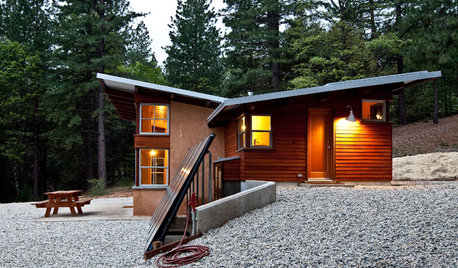



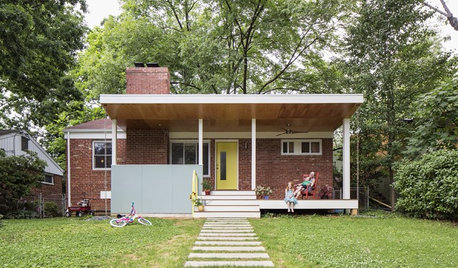
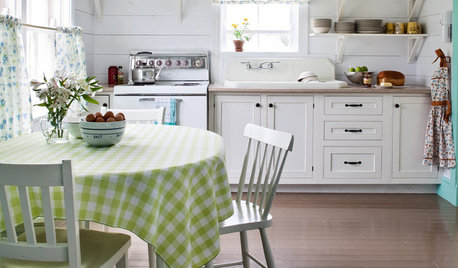


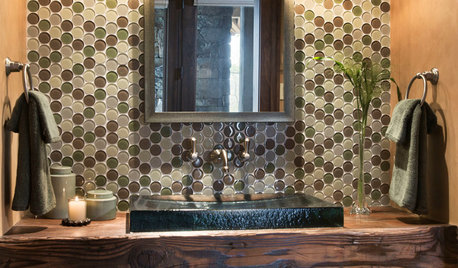






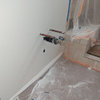
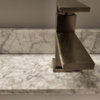
User